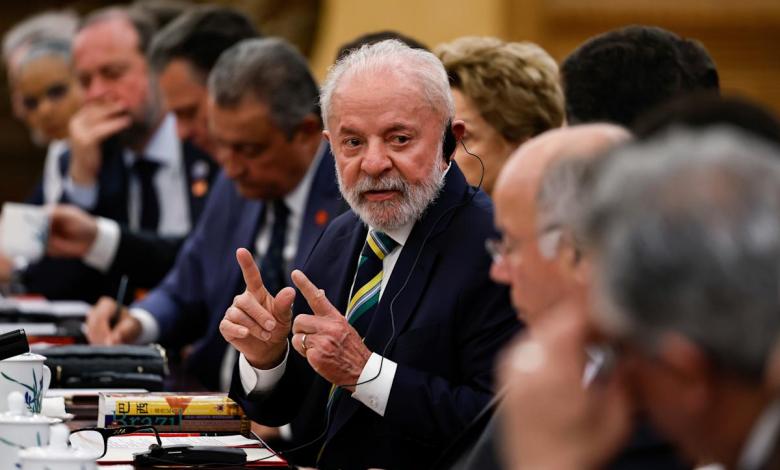The Lula of Brazil signs the law to expand positive action, increasing quotas for blacks in government jobs

Sao Paulo (AP) – Brazil President Luiz Inácio Lula da Silva Tuesday, signed a new law to extend the country's positive action policies, increasing the quota for government jobs reserved for blacks by 20% to 30% and adding indigenous peoples and descendants of the Afro-Brazilian assertion as beneficiaries.
The modifications apply to candidates applying for permanent and public jobs through the Federal Administration of Brazil, agencies, public foundations, public companies and mixed companies managed by the State. As approved by the congress, the quota will be revised in 2035.
“It is important to allow this country a day to have a company reflected in its public functions, in the prosecutor's office, in the Ministry of Foreign Affairs, in the Office of the Attorney General, in the internal Rété Service, everywhere,” said Lula at the presidential palace of the capital, Brasilia. “We still have few women, few blacks, almost no indigenous peoples.”
Brazil First law on racial quotas for government jobs was approved in 2014 by President Dilma Rousseff at the time, and a positive action policy was extended to public action that was in place for access to the universities managed by the State.
The Brazilian government said in a statement that blacks and mixed persons occupied 25% of the main government's main jobs in 2014, a figure that reached 36% in 2024.
“However, blacks are under-represented in the public service and occupy lower salary posts,” added the government.
The Minister of Directorate and Innovation, Esther Dweck, said that the new law was necessary due to a small number of new government jobs open for candidates in the last decade, when the previous quota was in place.
“We were unable to reverse the scenario of low representation (for minorities) in the public service,” said Dweck in a speech on Tuesday.
The Brazilian government said that 55% of the country's population is made up of black or mixed people. He added that more than 70% of Brazilians living below the poverty line are also black or mixed, while only 1% of people in these ethnic groups occupy management positions in the private sector.
____
Follow the AP cover of Latin America and the Caribbean to https://apnews.com/hub/latin-america





